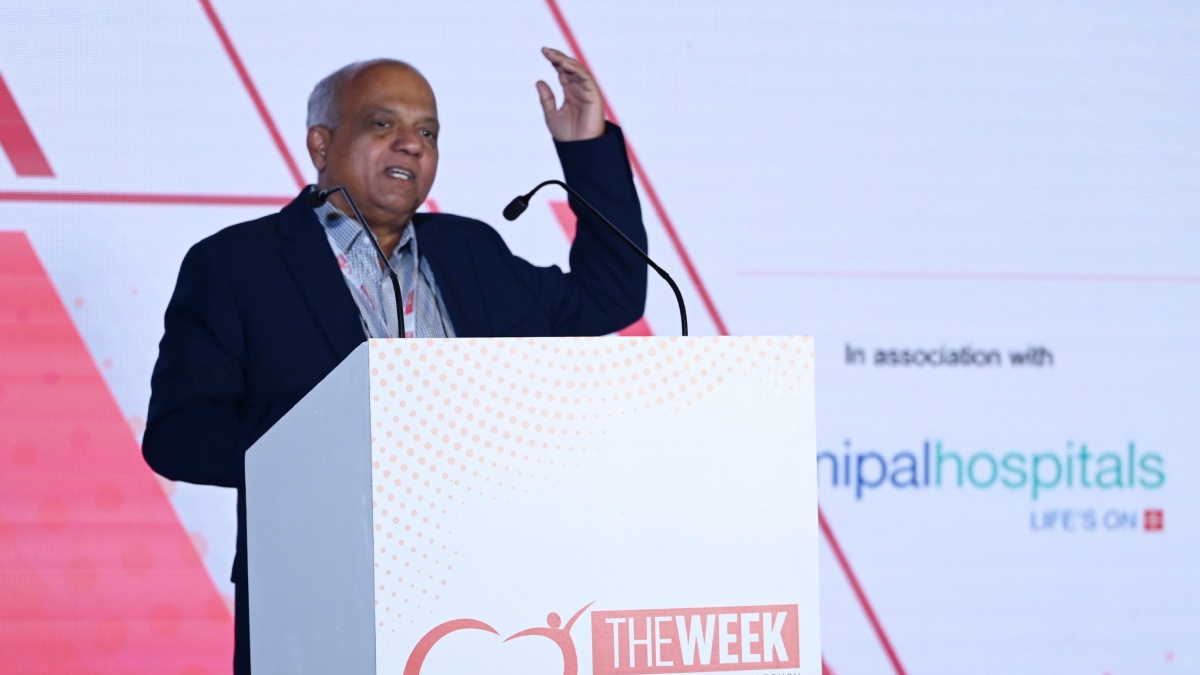India may have been late in waking up to the potential of antibodies-based treatment, especially for treating cancer, but it has the basics in place to become the hub of research and manufacturing for such drugs, biotechnology expert and founder-chairman of MedGenome Sam Santhosh said.
Sam Santhosh, who made a presentation at The Week Health Summit held in New Delhi today, was speaking on the subject ‘India’s role in pioneering new discoveries and technologies’.
Known as the father of genomics in India, Santhosh is credited with a huge body of pioneering work in the field of genomics and the use of genetic technology in the development of therapies to beat various diseases. He said India has so far okayed only around 25 of the 100-plus antibodies they have been approved globally.
This, he said, meant that lakhs of patients in the country did not have access to the antibodies-based drugs and it also resulted in the country losing out on the opportunity to manufacture these drugs.
He said that while the Indian pharmaceutical companies have done some great work in the field of manufacture of vaccines and generic drugs, they have missed out on the manufacture of engineered antibodies.
“If Bharat has to achieve Atmanirbharta in antibody treatment, we cannot afford to miss the opportunity again. We have what it takes – clinicians, researchers and biotech pharma. And the government also has a key role in this,” Santhosh said.
He said the way forward was to have greater genetic testing, and collation of clinical data which researchers can then work on, and which can then lead to pharma companies manufacturing the new molecules at a mass scale.
The government, he said, should help by speeding up approvals for trials.
According to Santhosh, engineered antibodies that are developed based on specific mutations are the future of cancer treatment. More than 50 per cent of the 100-plus drugs that have been developed are for cancer.
“These drugs have better efficacy, offer precision treatment and also help deal with the issue of the toxicity of conventional treatment,” he said.



